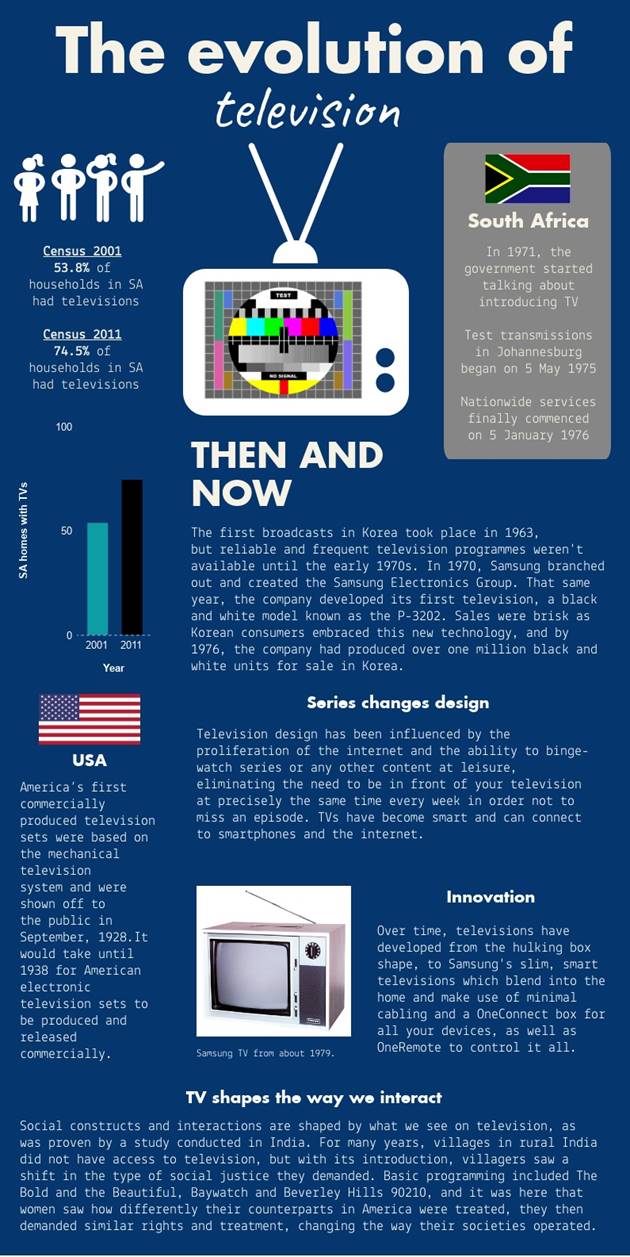The Evolution & Technological Leap of TV


While many have regarded the television as evil for various reasons, the TV has become a medium that serves as both an information centre and tool for education.
For those that are not aware, the very first electronic television was invented by Philo Taylor Farnsworth, who lived in a home without electricity until the age of 14. The first image he transmitted was a line, but he later managed to transmit a dollar sign after a potential investor asked when he would begin to see some dollars.
While television sets were taking the world by storm, South Africa lagged behind and was one of the few countries in the world to not have watched the famous moon landing in 1969. It was only in 1971 that South Africa introduced a television service.
With the progression of technology, the TV has become more advanced from its humble days like when Samsung Electronics, one of the leaders in TV technology produced its first set in 1970, a12-inch black and white model.
The innovation and development didn’t stop there. From the first digital television to Ultra High Definition, OLED and now QLED televisions which are taking the market by storm – with quantum dots that are particles of between two and 10 nanometres in diameter – each giving off different colours according to their size.

Director of Consumer Electronics for Samsung South Africa Mike van Lier says the company has been pushing towards innovative technology that consistently breaks boundaries.
“QLED technology brings the world right into your home – it’s no longer about merely watching a television programme, it’s about being fully immersed in the content. The colours, crispness, quality of image and sound create an experience that’s like no other.”
With the Internet more accessible in today’s times, Streaming services have also changed the way people consume television programming. Which is why TVs need to have the ability to connect to the internet, allowing viewers to choose their content on one screen.
While South Africans may have missed out on watching the moon landing in 1969, it’s just possible that they will get to watch the first Mars landing, live and in extraordinary colour and depth.





